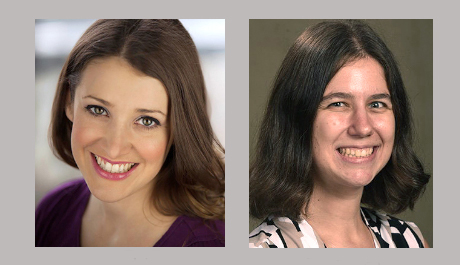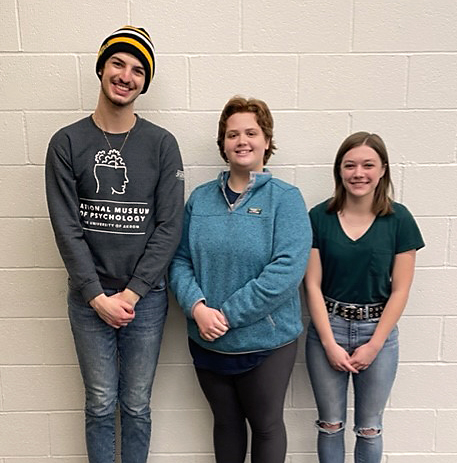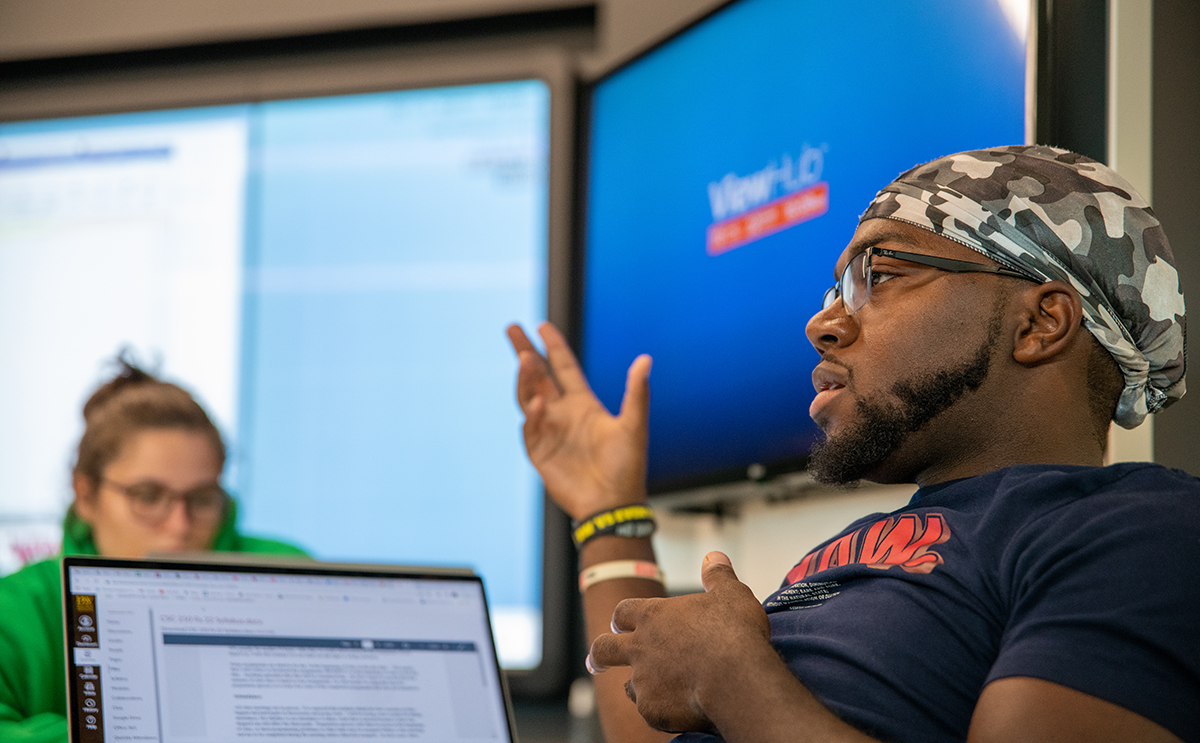BW study explores character persona to understand 'Where do I start and you end?'
Ask BW assistant professor Anjanette Hall about the interdisciplinary research that unites her theatre students with psychology majors, and she'll talk about the need to "smash stereotypes" about acting and the importance of protecting an artist's physical and mental well-being.
"The art of acting is often misunderstood," she explained. "People believe it to be illusive, or it's just something someone is talented at or not. The reality is that good acting occurs when an actor is living truthfully under imaginary circumstances.
 "That
moment-to-moment
truth
can
only
be
applied
when
an
actor
is
daringly
and
vulnerably
using
personal
experiences
and
a
sense
of
self
to
achieve
what
the
playwright
is
seeking.
Arguably,
no
other
art
form
requires
so
much
of
the
artist
as
far
as
emotional
sense
memory
and
physical
and
mental
connection
to
someone
else.
The
more
we
understand
this
process,
the
more
we
can
help
actors,"
believes
Hall.
"That
moment-to-moment
truth
can
only
be
applied
when
an
actor
is
daringly
and
vulnerably
using
personal
experiences
and
a
sense
of
self
to
achieve
what
the
playwright
is
seeking.
Arguably,
no
other
art
form
requires
so
much
of
the
artist
as
far
as
emotional
sense
memory
and
physical
and
mental
connection
to
someone
else.
The
more
we
understand
this
process,
the
more
we
can
help
actors,"
believes
Hall.
Bridging Personal Experience with Character Persona
In the fall, Hall and associate professor of psychology Dr. Stephanie Rothman began a research study that focused on self-expansion in acting. It looked at whether theater students take on aspects of the fictional characters they are portraying in a production and the impact it has on them.
A well-published researcher, Rothman is a social psychologist whose work often focuses on topics like self-concept, social rejection and relationships. The theatre collaboration is of particular interest to her because of its interdisciplinary scope.
"I have been absolutely delighted to work with Anjanette and students from both psychology and theatre," said Rothman. "Studying this question from an interdisciplinary perspective has broadened the horizons of everyone involved and allowed us to tackle our research questions from multiple viewpoints, giving us valuable and unique insights we may not have reached alone."
From BW to a Regional Conference Presentation
Eight students served as research investigators. Among them is Claire Waller '23, a double major in psychology and criminal justice from Maumee, Ohio.
"We attended rehearsals and final shows of multiple productions BW put on last semester. We interviewed the actors and had them complete an online survey. In addition, we interviewed them about their acting strategies and how the roles impacted their personalities," she noted.
Working alongside her with data collection is Jack Swanson, a senior psychology major from Twinsburg, Ohio, who believes his experience with the project offers outstanding career preparation for his goal of becoming an adolescent counselor.
"I had to become very comfortable with asking probing questions, digging deeper when necessary and building a rapport with the students I interviewed. Since counseling is mainly conversational, the ability to formulate questions and guide the dialogue in certain ways has really readied me for my career post-graduate school," stated Swanson.
 In
April,
Swanson
and
Waller
will
join
Emily
Hathcock
'22
in
presenting
the
research
at
the
Midwestern
Psychological
Association
conference
in
Chicago.
In
April,
Swanson
and
Waller
will
join
Emily
Hathcock
'22
in
presenting
the
research
at
the
Midwestern
Psychological
Association
conference
in
Chicago.
The three individuals are among five students currently working on data analysis with Rothman, who said they are "reviewing interview transcripts to identify themes that can help them better understand the experiences of the student actors as they relate to self-expansion, mental health and other areas."
Rothman went on to say they also will perform linguistic analysis on the transcripts to identify patterns in students' word choice and any associated implications. As an example, she said they are looking at whether the student actors often use "I" and first-person pronouns when referring to the role they are playing.
Building a Pathway for Future Studies in Arts, Social Sciences
"As we analyze the data, we can get a better understanding of the role self-expansion has in acting. Most trained actors will likely have some degree of it in their work because they use some form of technique that connects 'self' to character through personalization," believes Hall, who has 20 years of professional acting experience.
"For myself, I find there are variables that inform the level to which I self-expand into the characters I play. Often, it presents itself in my physicality. Sometimes I will continue to walk or carry myself the way I do when I am in rehearsal or in performance. It can also be my voice, whereas I will speak in the same dialect or speech pattern even when I'm not in character," she added.
"Working on this study with Stephanie has been an exciting interdisciplinary opportunity. Stephanie's impressive background in social psychology and years of research experience were instrumental to the success of this research. It helped us set a framework for translating what we were interested in studying into how to actually collect and analyze data," noted Hall.
"Uniting the arts with the social sciences and research bridges new realms of study that are intriguing and needed as we move forward with better understanding the interplay of imaginary and reality as it pertains to acting. But there are many other areas that can be studied. This is only the beginning," she emphasized.



